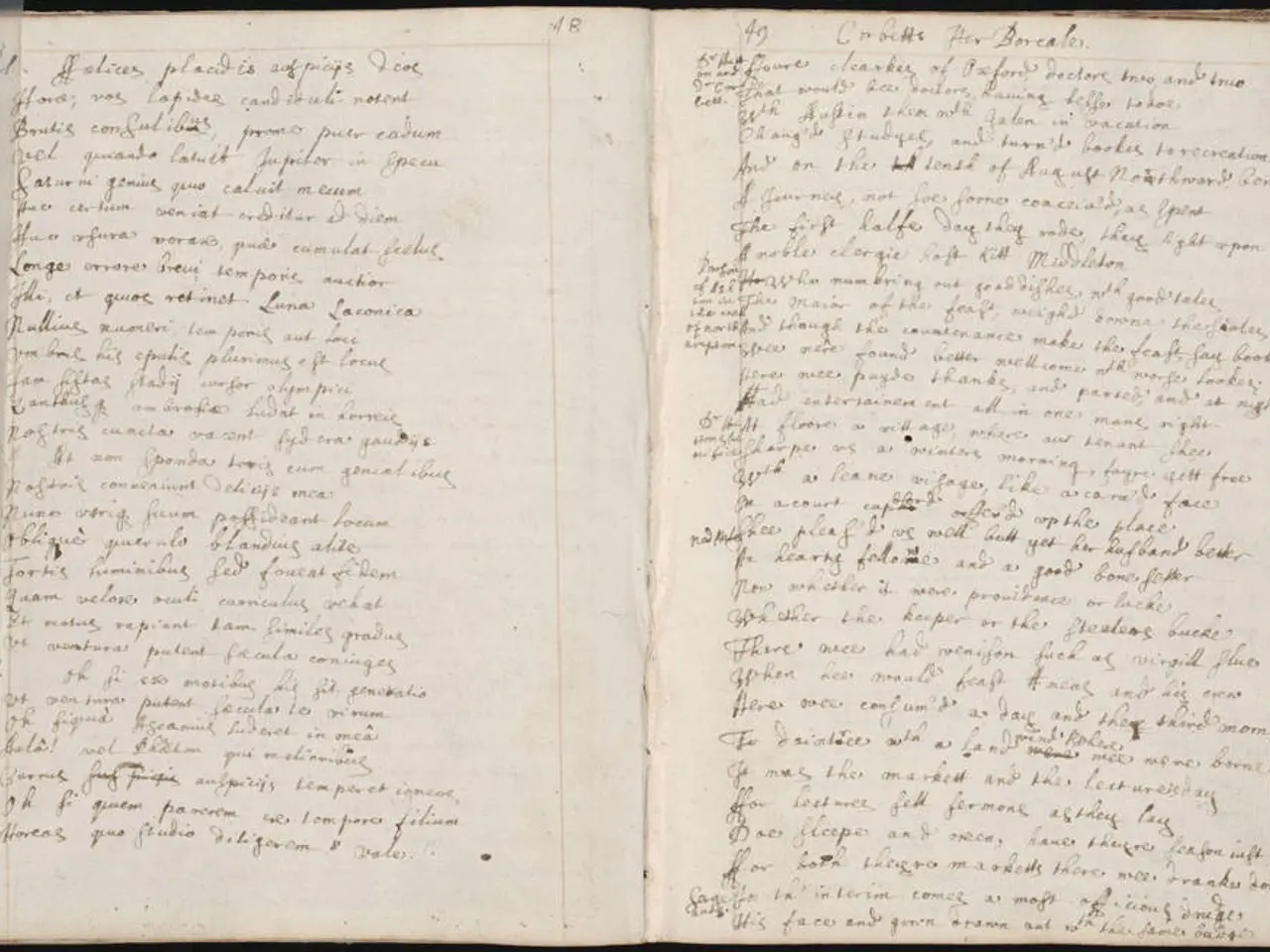Strategies for Enhancing Memory Recall in Complicated Storyline Creation and Character Formulation
In the world of writing, penning a riveting novel with an intricate plot and vivid characters ain't just about raw creativity—it's demanding solid memory skills, mental organization, and cognitive endurance. That's right, my fancy friend; writers need the works if they're gonna juggle multiple storylines, keep track of character arcs, and maintain continuity across hundreds of pages.
To keep your story cohesive and characters consistent, consider adopting cognitive techniques, memory-enhancing strategies, and brain-boosting nootropics that optimize recall, focus, and narrative structuring.
Here's what they say holds true:
Why the Memory Game Matters in Writing Novels
- The Mind-Boggling Demands of Storytelling:
Writing a spellbinding yarn is no walk in the park—it requires plenty of brainpower to tackle intricate plots, consistent character arcs, detailed world-building, and maintaining thematic continuity.
- Writer's Memory Bottlenecks:
From forgetting character details to losing track of subplots, many a scribe faces memory roadblocks while spinning their web of words. Time management, timeline confusion, and overloaded world-building can jeopardize story quality.
To steer clear of these pitfalls, here's a bag of tricks:
Memorization Techniques for Writers on a Roll
- Story Bible: Your Organized Recall Sidekick
Collect everything in one place: character profiles, timelines, plot summaries, and world-building details. This handy aid helps refresh information quickly without relying on raw memory.
- Memory Palace (Method of Loci): A Cognitive Shortcut
Associate story details with specific locations in a familiar mental space. By doing so, you can retain complex story details while keeping your wits about you.
- Mind Mapping: Visual Storytelling Organized
Pictures and diagrams help establish connections between plotlines, characters, and themes. This supports associative memory and makes recalling story elements a walk in the park.
The Role of Z's in Memory Consolidation
While it's vital to master storytelling techniques, do not underestimate the power of a sound night's sleep. Dreamland is where your brain works its magic, processing character details, plot twists, and thematic connections to improve recall and maintain mood.
- Better Recall Through Sweet Dreams
During sleep, the brain strengthens long-term memories (episodic and semantic), helping you retain character backstories and world-building details.
- Maximizing Recall: Sleep Hygiene Matters
Adopt good sleep habits like sticking to a routine, limiting screen time, and practicing relaxation techniques to ensure your nocturnal processing is top-notch.
- Sleep Noots for the Win
Supplements like magnesium L-threonate, glycine, and ashwagandha improve sleep quality and consolidate memories during sleep.
Nootropics to Improve Memory and Creative Recall
When powering through your novel, turn up the cognitive edge with acetylcholine boosters, neuroplasticity enhancers, and dopamine modulators to fuel memory encoding, creative flexibility, and narrative flow.
- Luau vibes all day: Acetylcholine Boosters
Stay sharp with citicoline, alpha-GPC, and huperzine A. These brain nutrients boost working memory, verbal fluency, and logical structuring.
- Wires in your brain going wild: Neuroplasticity Enhancers
Species like lion's mane mushroom, bacopa monnieri, and noopept accelerate memory consolidation by promoting nerve growth and improved recall.
- Ride the creative wave: Dopamine Modulators
Ready to dive into a writing marathon? Here's the pick-me-up: tyrosine, phenylpiracetam, and Rhodiola rosea will enhance mental endurance, creativity, and pattern recognition.
Before you say your pen-and-paper prayers, remember to incorporate sensory tags, visualization techniques, chunking information into manageable parts, and maintaining detailed, organized records. Happy novel crafting!
- The demands of storytelling in writing a novel are mind-boggling, requiring solid memory skills, mental organization, and cognitive endurance.
- Many writers face memory roadblocks while spinning their web of words, such as forgetting character details, losing track of subplots, or struggling with time management and timeline confusion.
- To steer clear of these pitfalls, consider adopting cognitive techniques, memory-enhancing strategies, and brain-boosting nootropics that optimize recall, focus, and narrative structuring.
- A Story Bible, a collected repository of character profiles, timelines, plot summaries, and world-building details, can serve as an organized recall sidekick for writers.
- The Memory Palace (Method of Loci) is a cognitive shortcut that helps retain complex story details by associating them with specific locations in a familiar mental space.
- Mind Mapping, a visual representation of the story elements, supports associative memory and makes recalling story elements easier.
- A good night's sleep is crucial for memory consolidation, as dreams allow the brain to process character details, plot twists, and thematic connections to improve recall and maintain mood.
- To maximize recall, adopt good sleep habits, such as sticking to a routine, limiting screen time, and practicing relaxation techniques to ensure your nocturnal processing is top-notch.
- During your novel-crafting journey, consider supplementing with nootropics like acetylcholine boosters, neuroplasticity enhancers, and dopamine modulators to fuel memory encoding, creative flexibility, and narrative flow.








